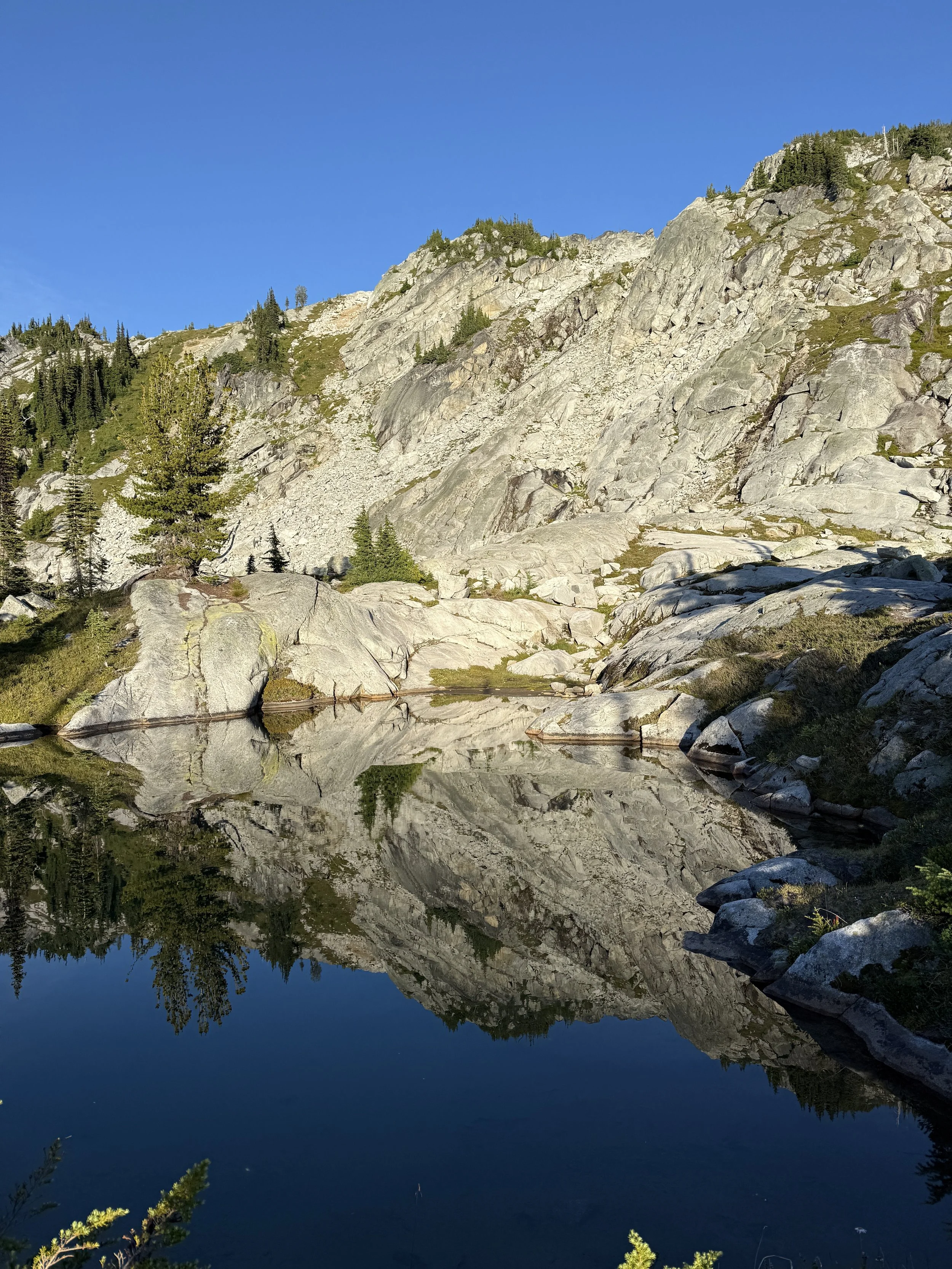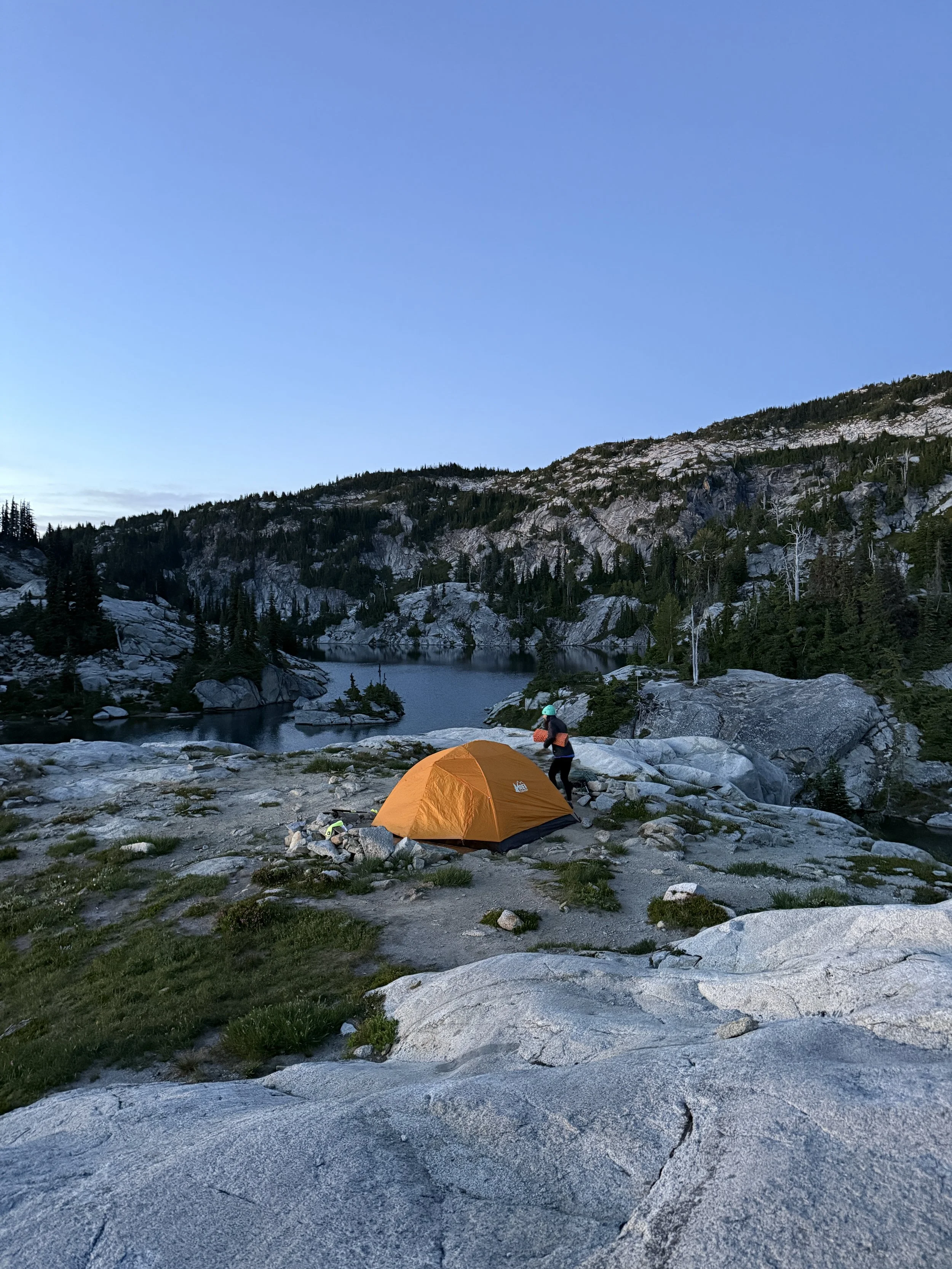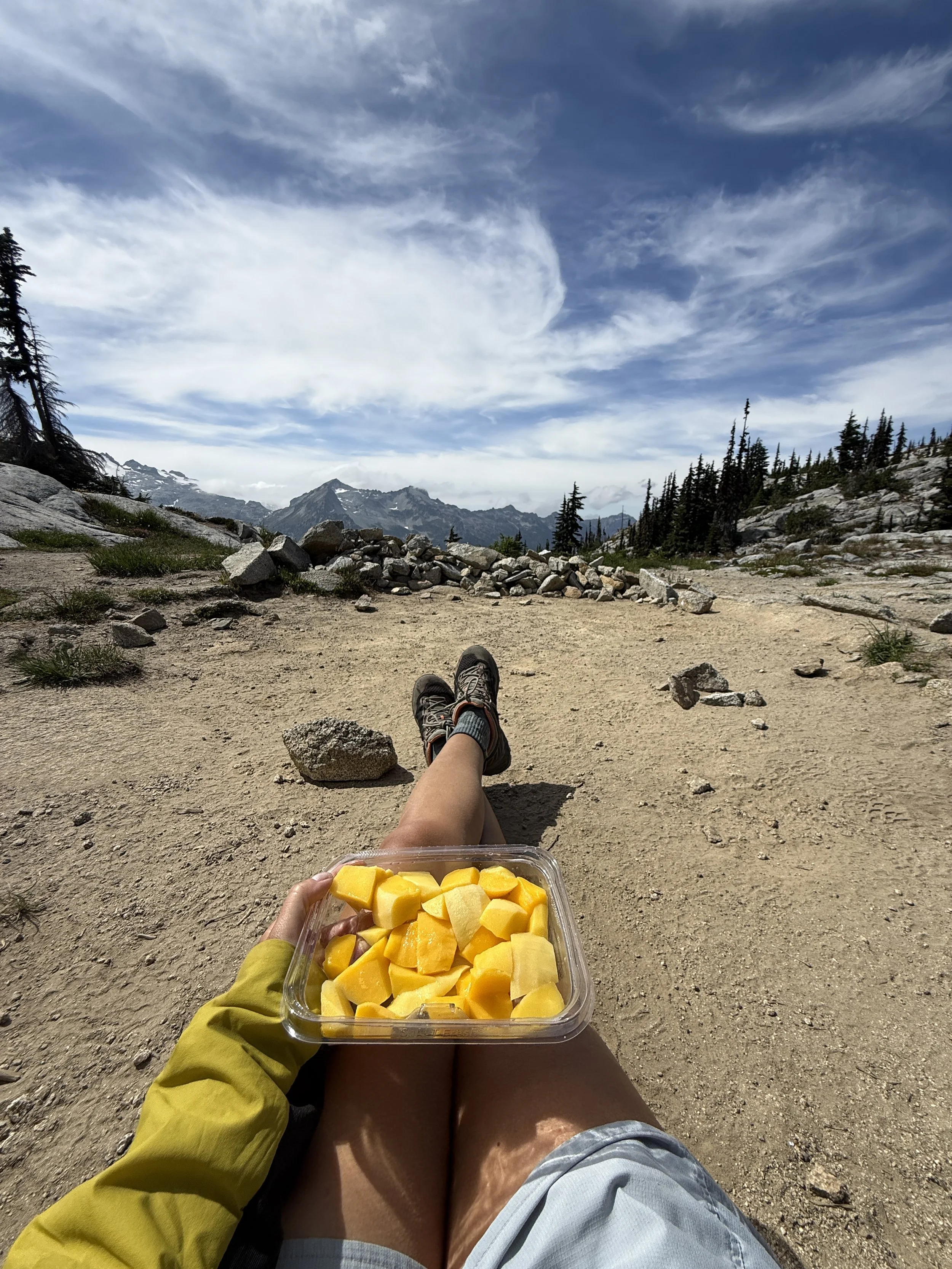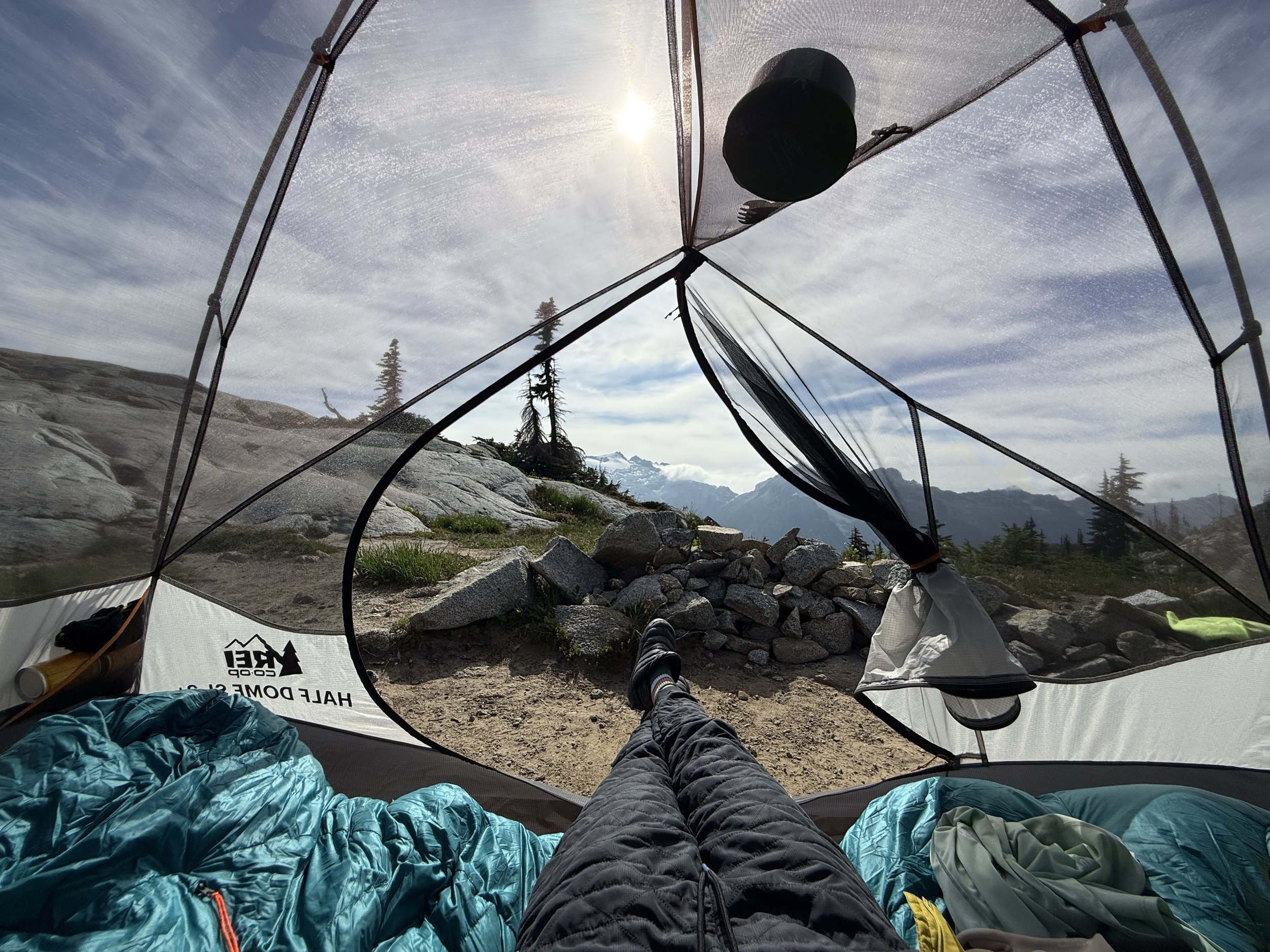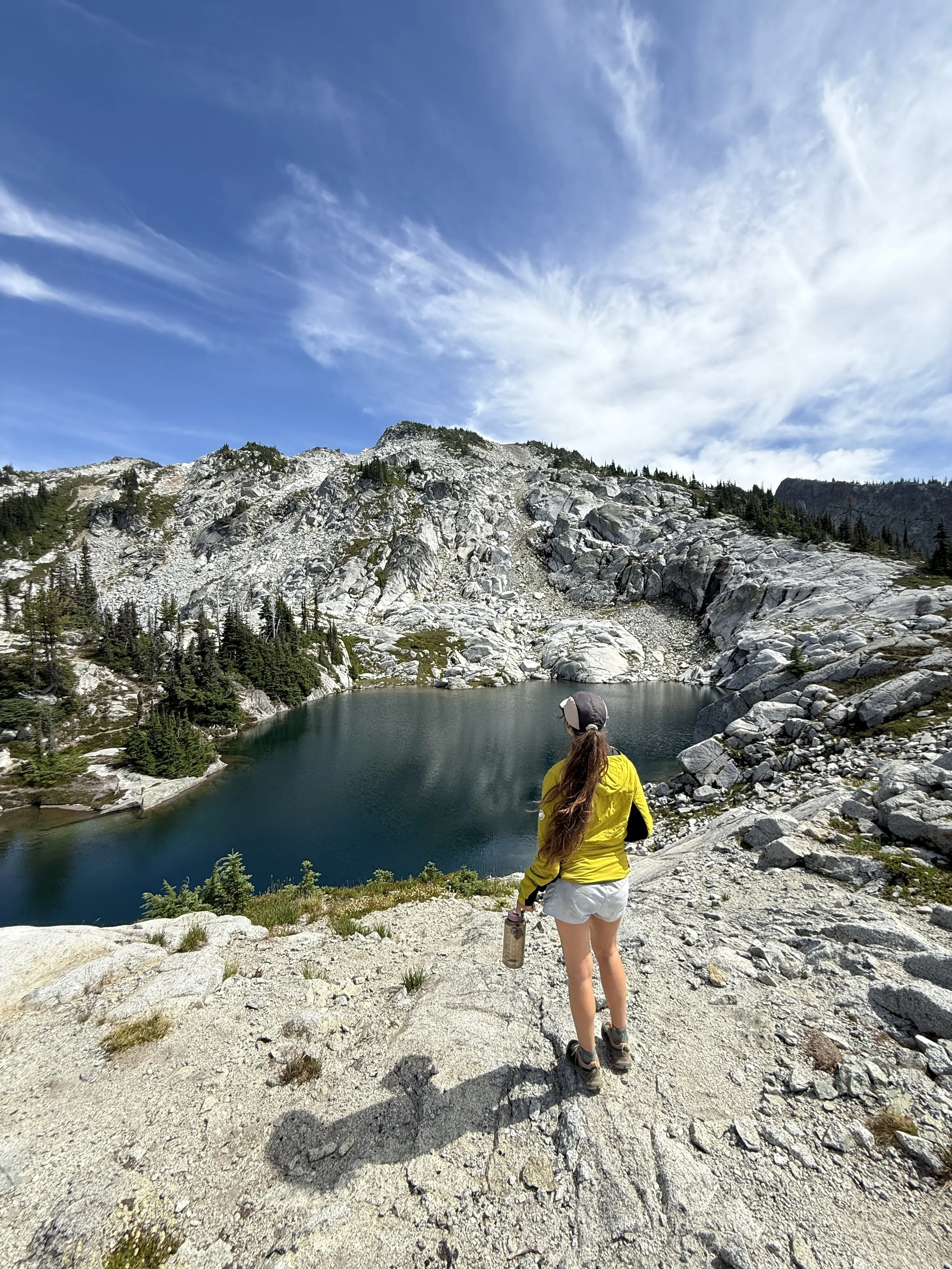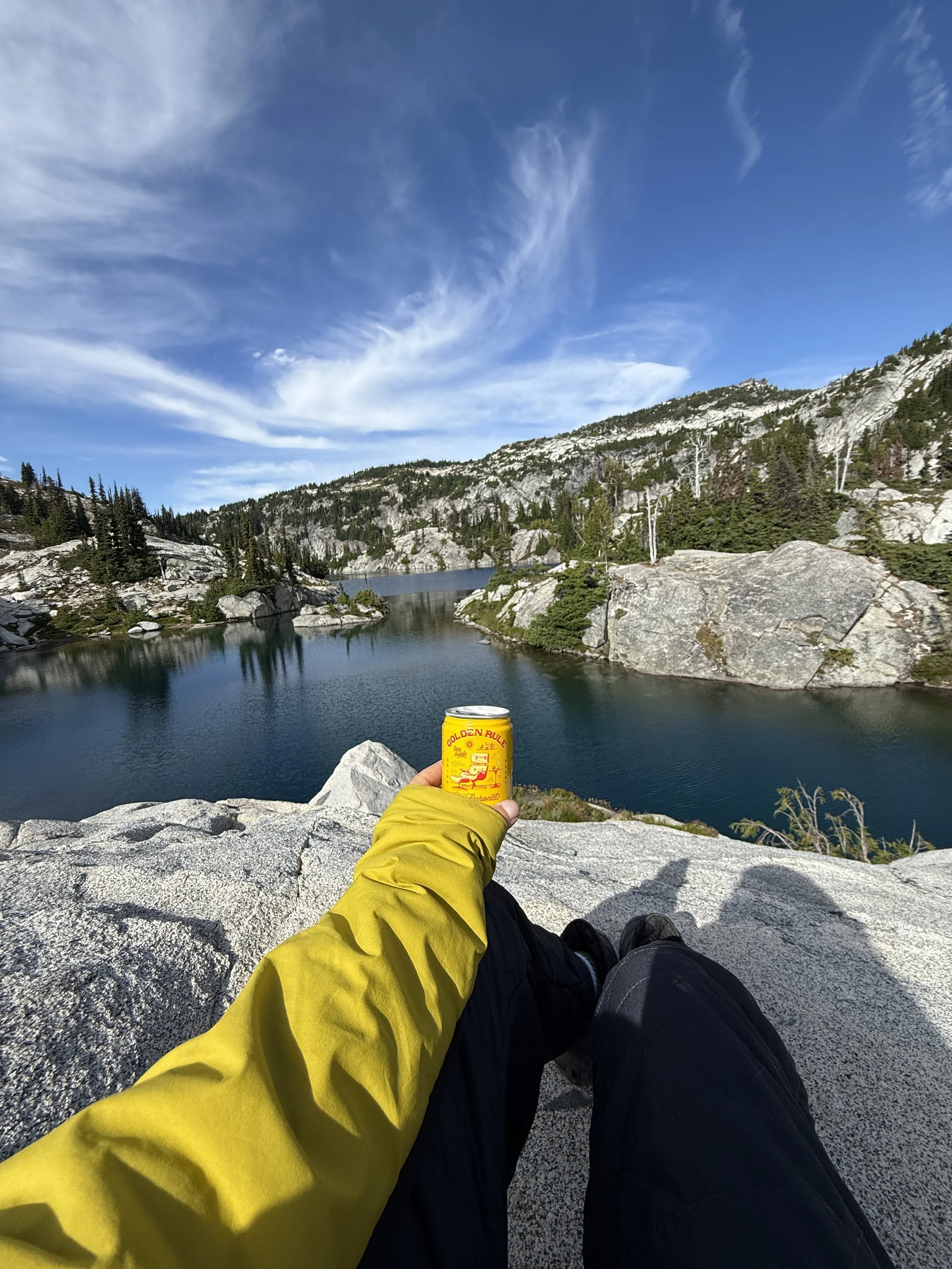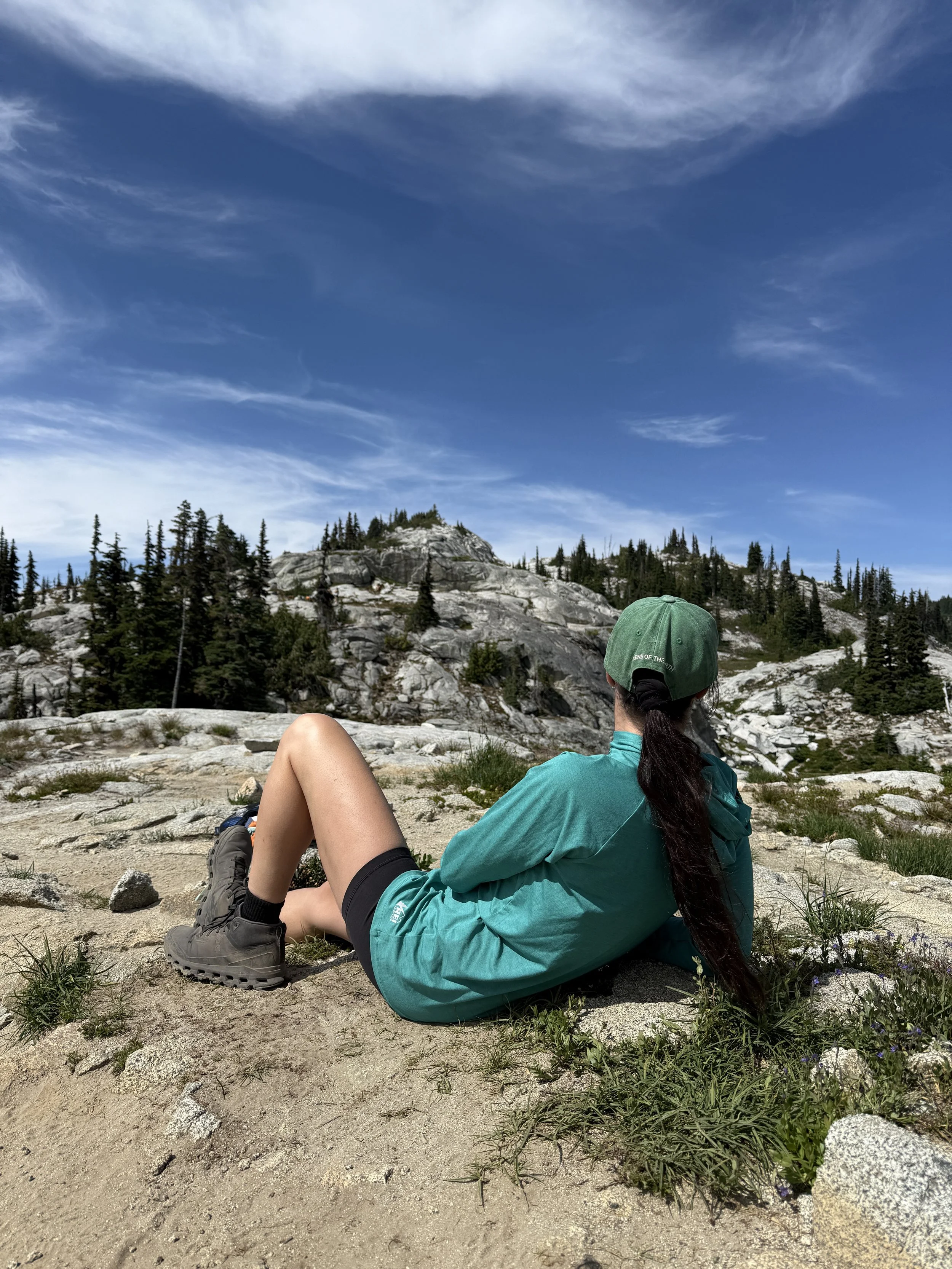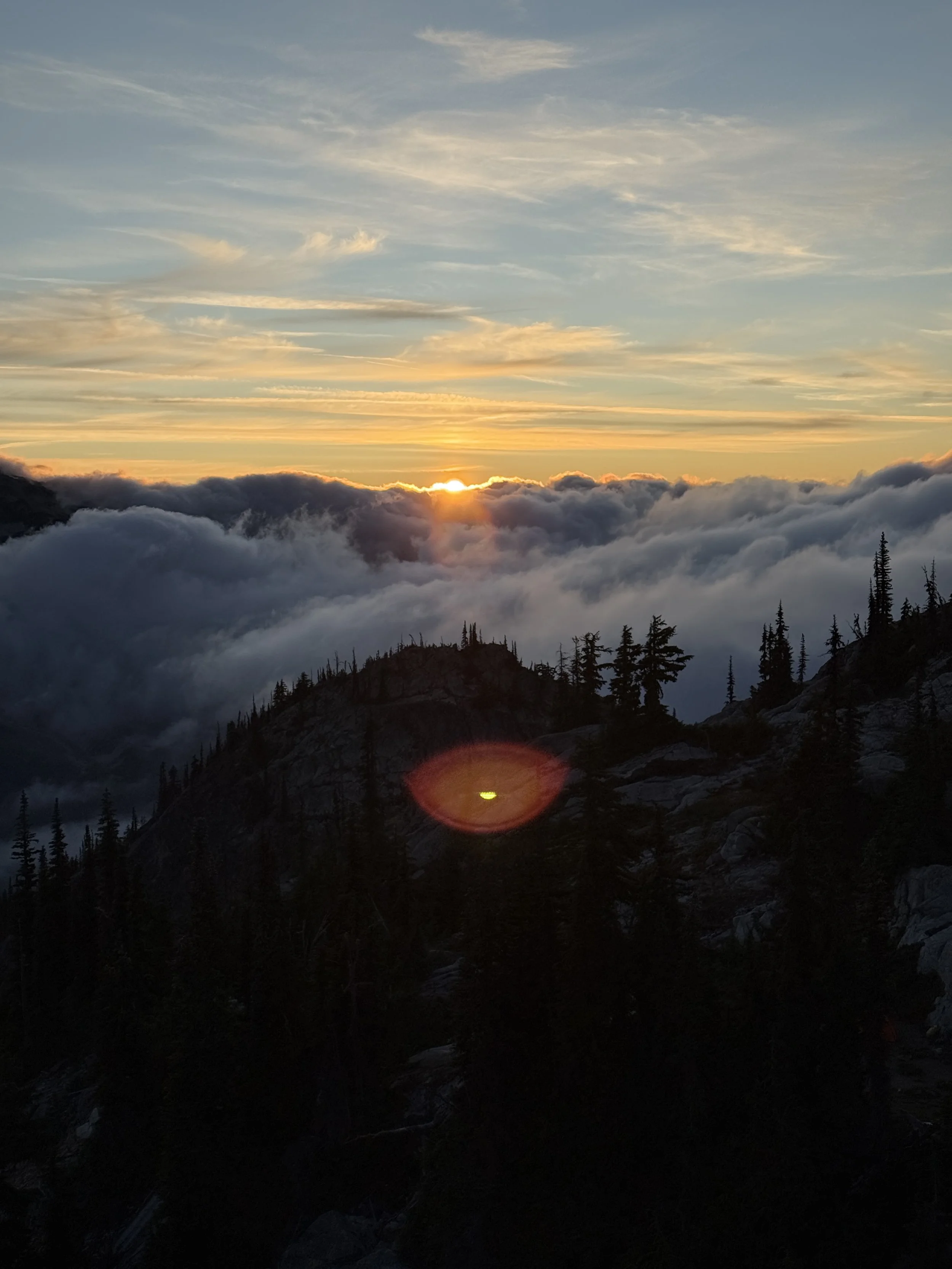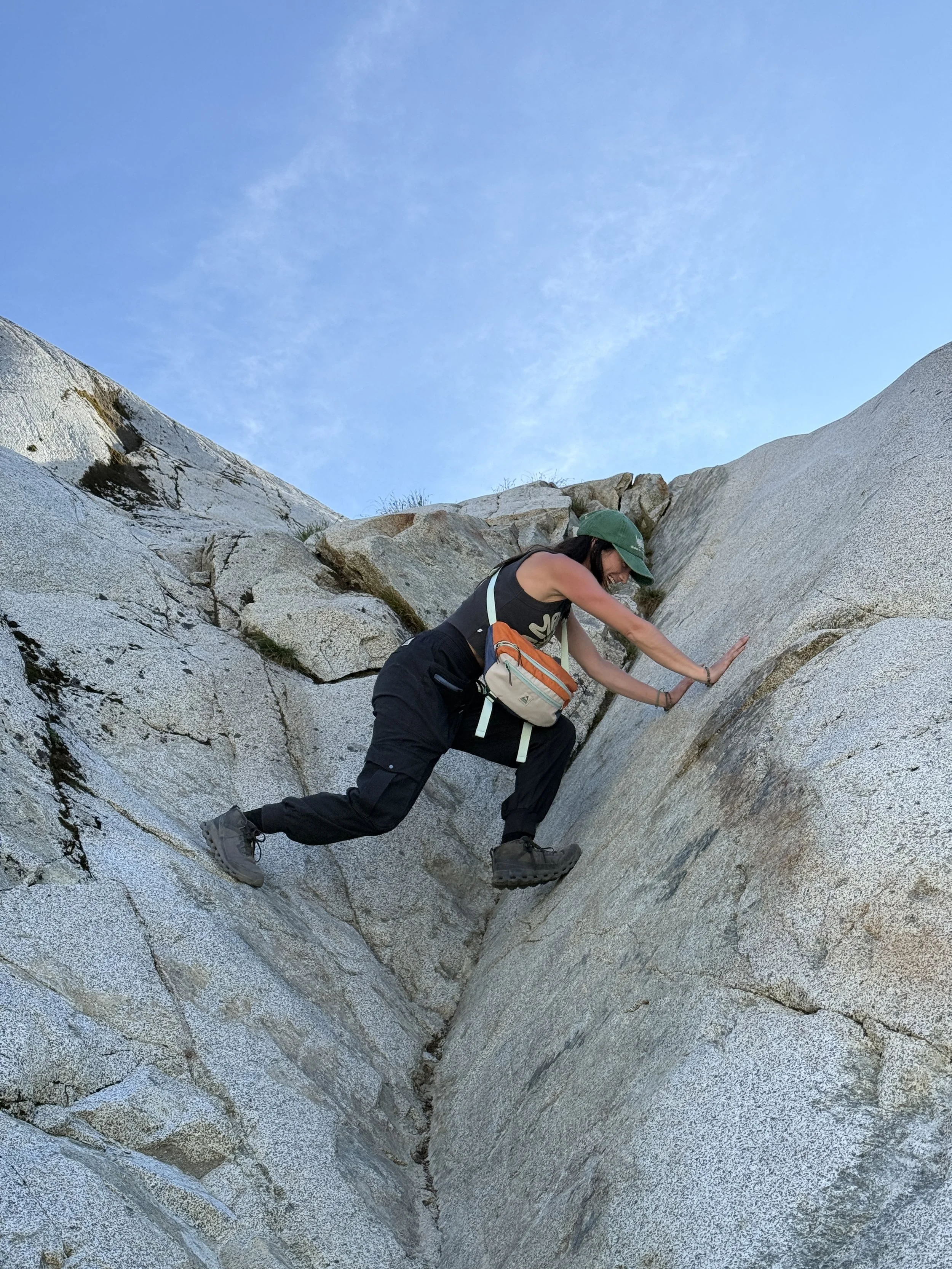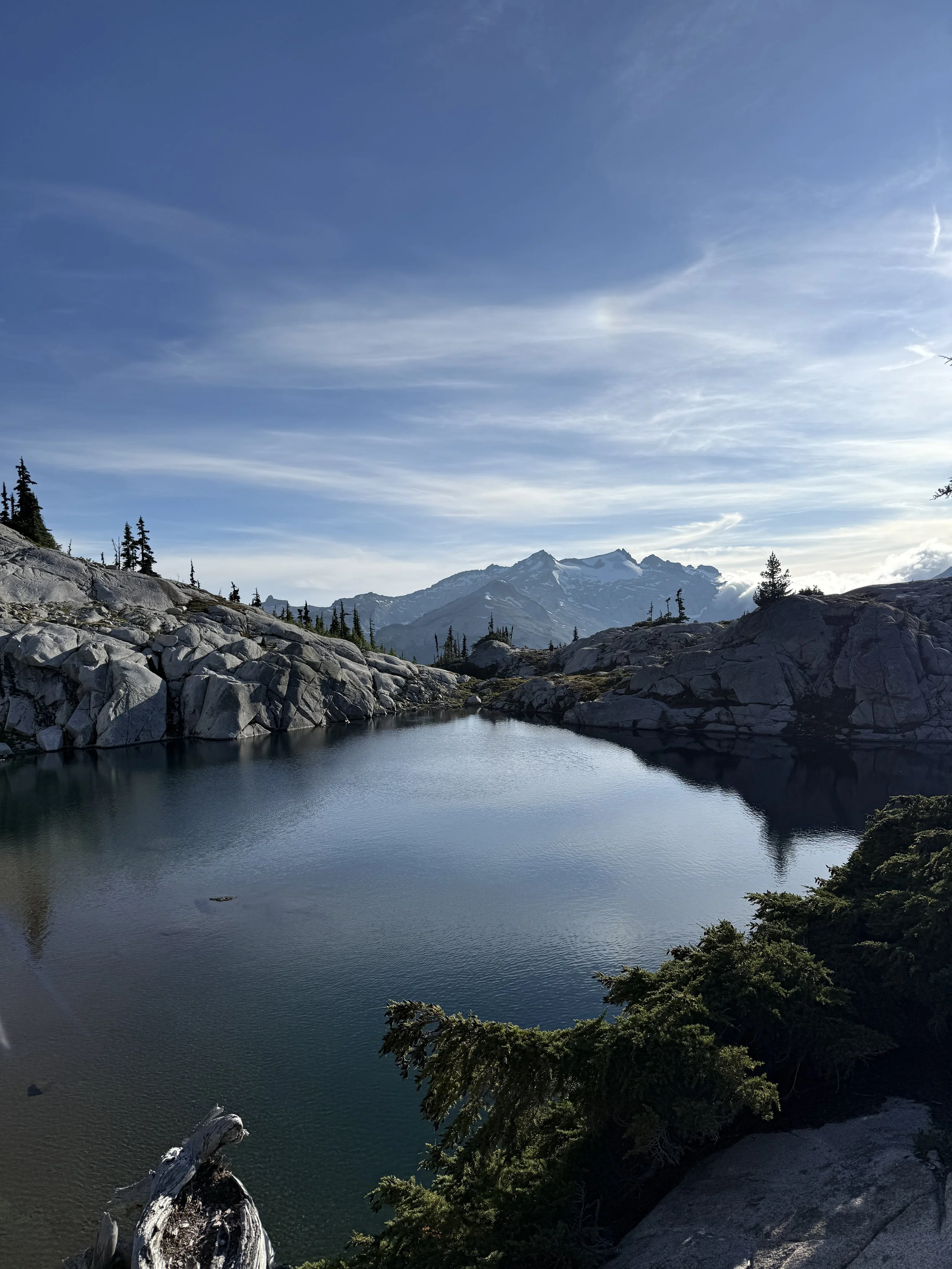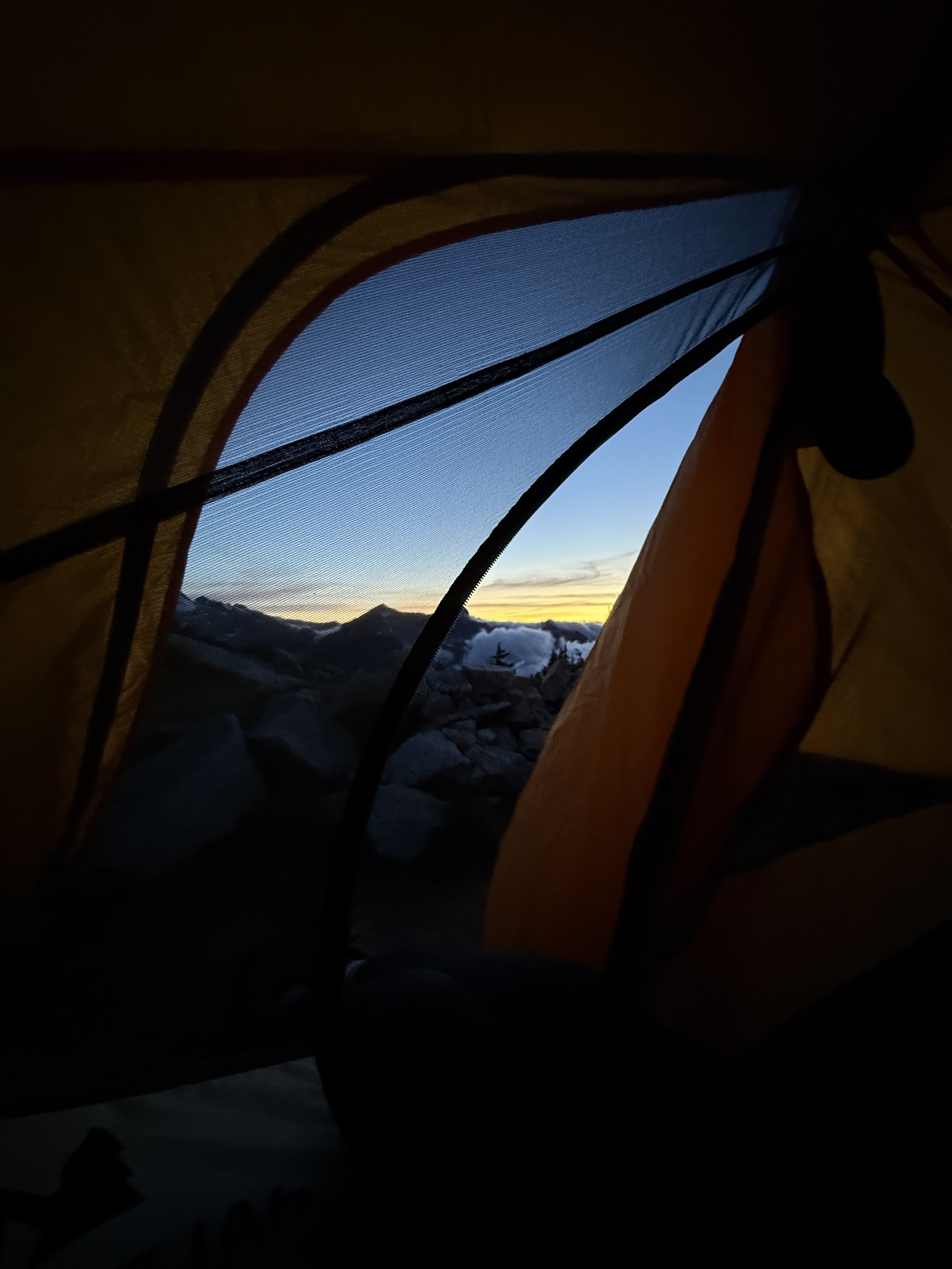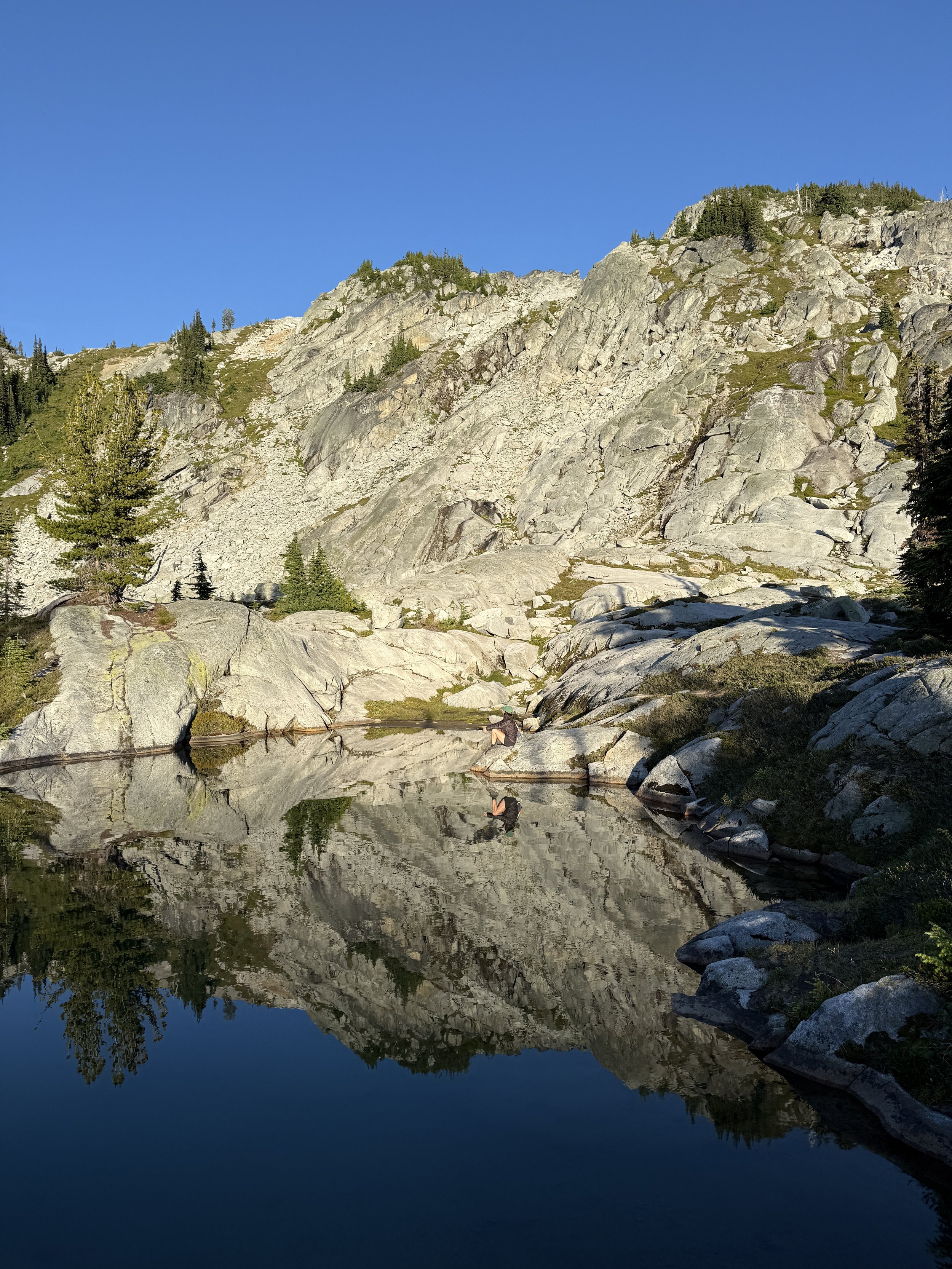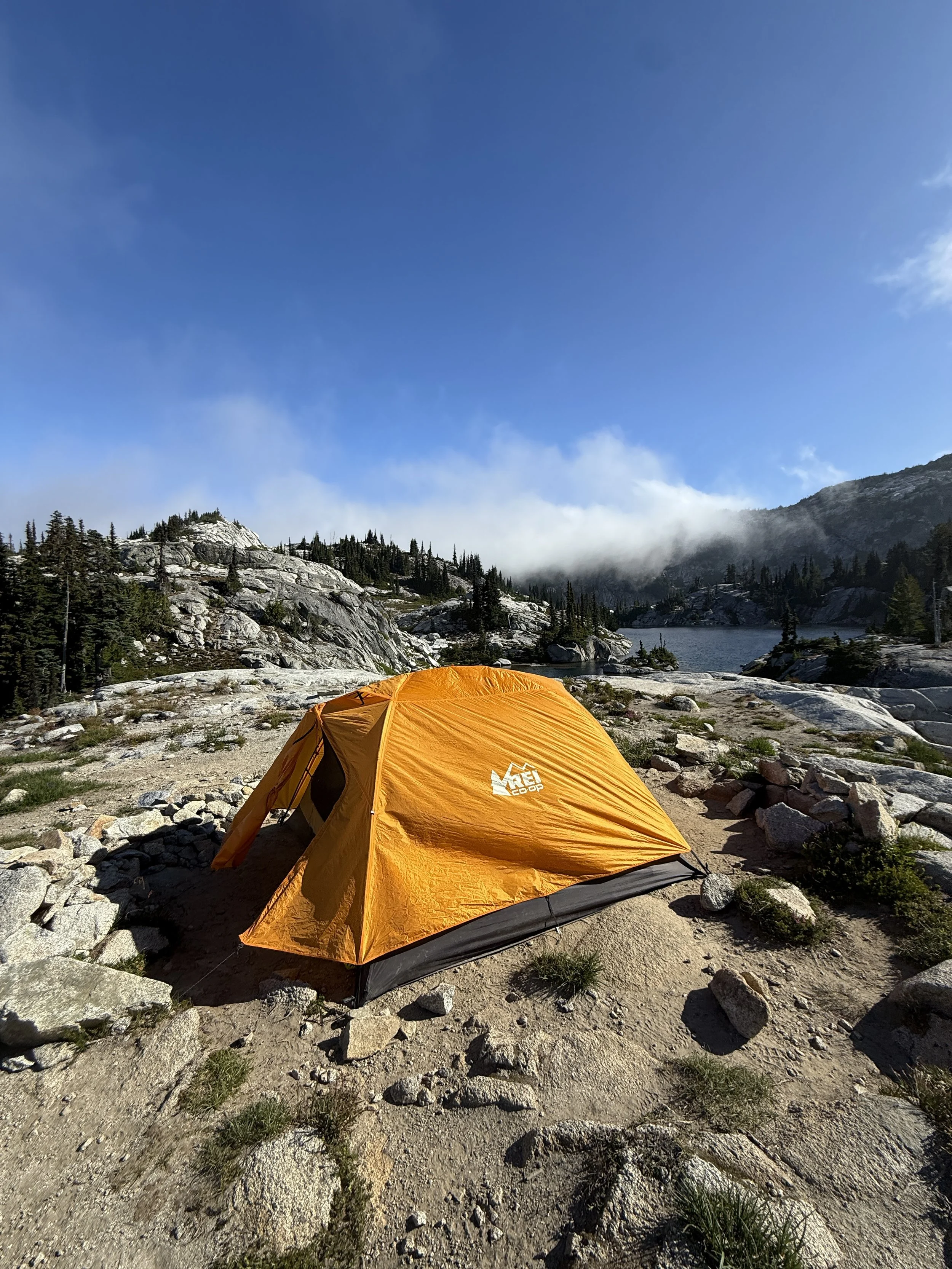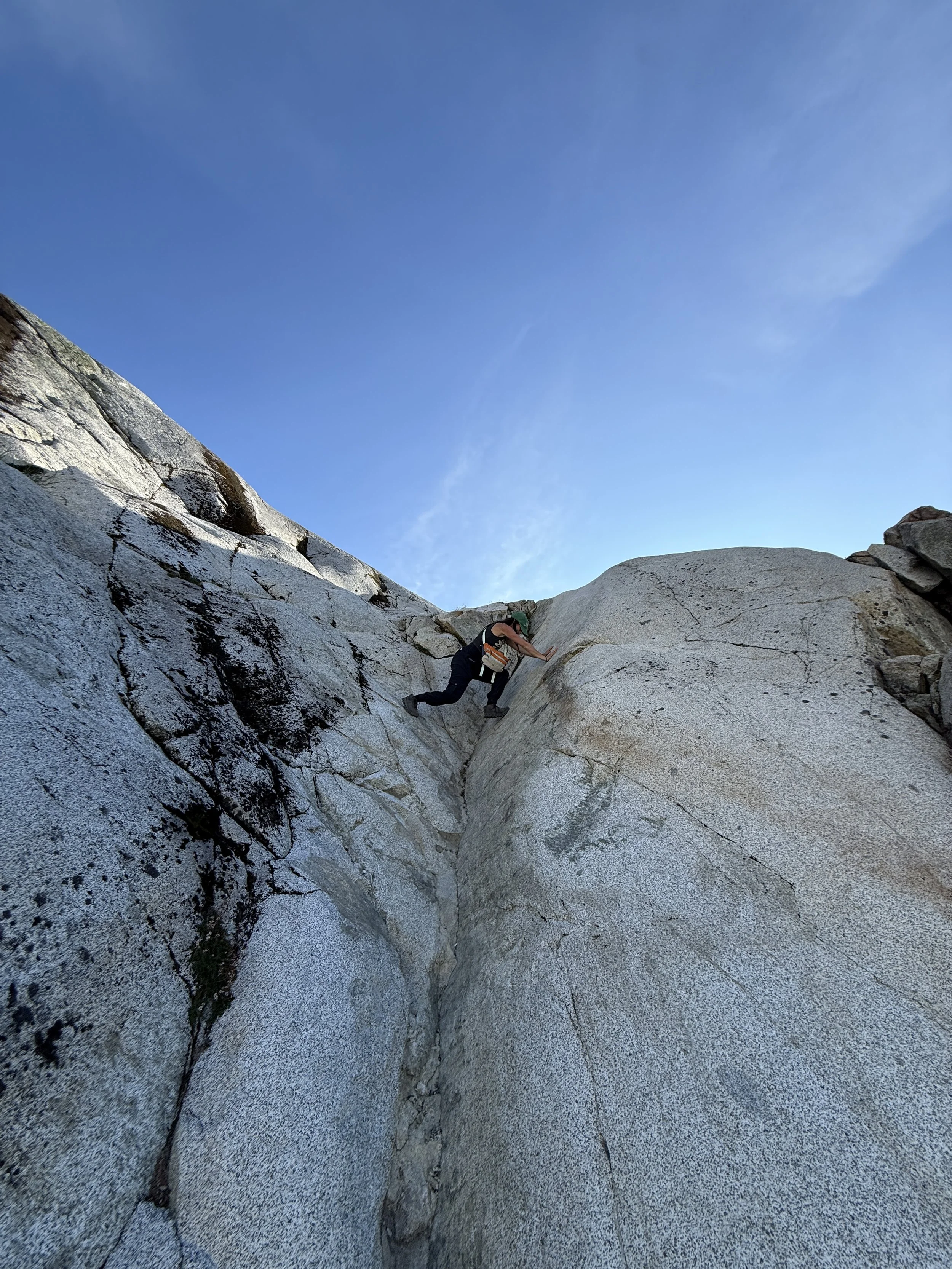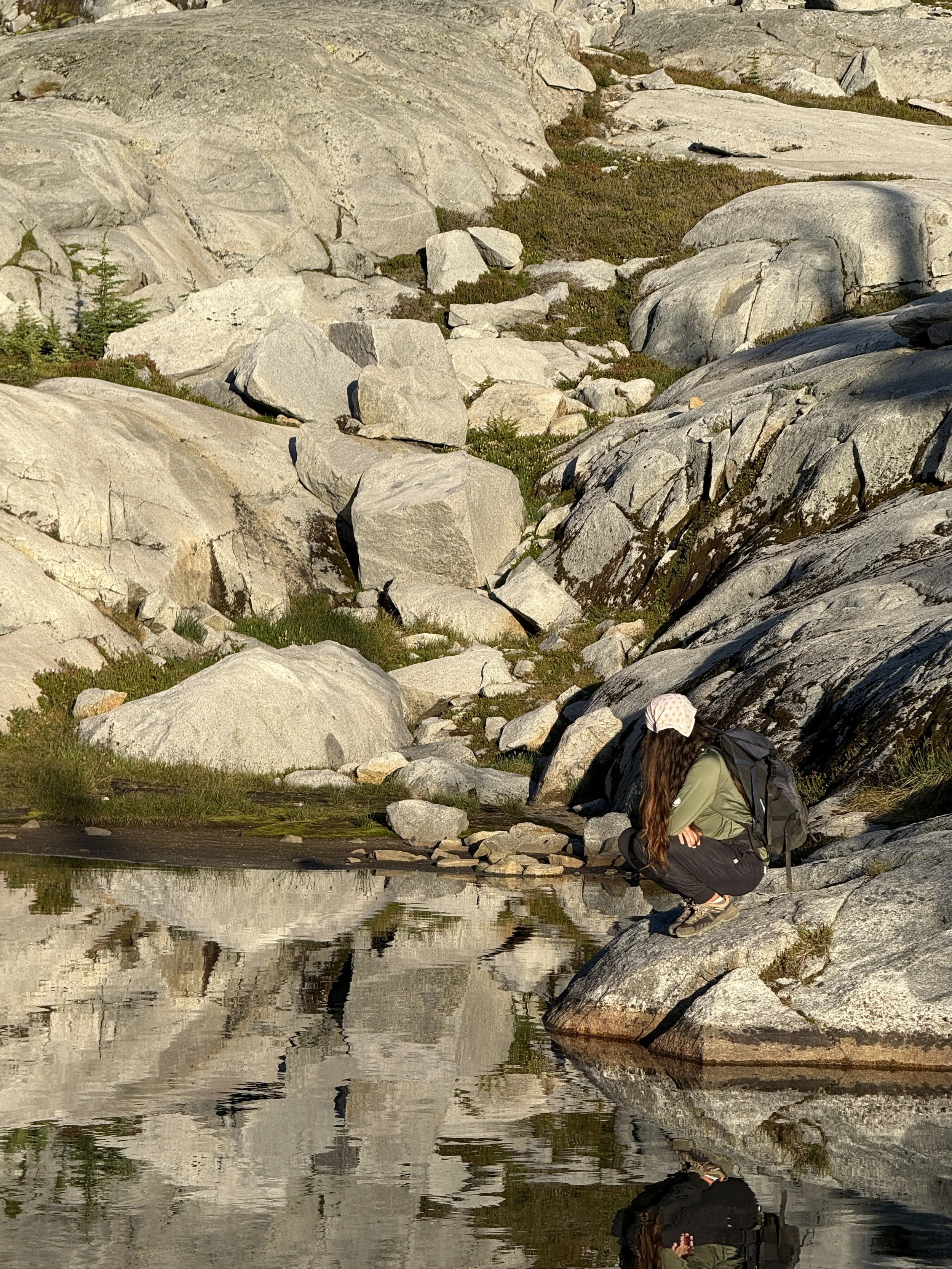Lost & Found: A Tuck & Robin Tale

Featuring Sunset Ramen, Wilderness MacGyvering, and One Very Wet iPhone
Last weekend, my new adventure pal and I packed our bags, our bug incense, and a whole lot of snackies, and hiked up to Tuck and Robin Lakes for a little off-grid magic. If you’re a fan of remote alpine camping, trout-filled lakes, and the occasional bit of backcountry chaos, this is a must-do Washington hiking trip. The trail delivers big views, cold alpine lakes, and some Type 2 uphill fun us female backpackers secretly live for.
We started with a mellow 4-mile hike through the lush, green valley bottom that buzzed with late-summer life. Shortly after patting ourselves on the back for speed and efficiency the trail gets steep, rocky, and rugged, just the way us Pacific Northwest hikers like it. To envision the next part of the trail, you must think stair-master in the woods... level 15!
The point at which my knee cartilage left the chat.
From Tuck Lake to Robin Lakes, the trail becomes a choose-your-own-adventure maze that resembled a bowl of spaghetti thrown against a granite wall. Offline maps and strategically placed cairns saved us more than once—there were dozens of offshoot “trails” to viewpoints, dead ends, or mystery cliffed out destinations. Route-finding was surprisingly easier on the way up than the way down, which ended up feeling a bit more like a backcountry escape room.
Don’t be disillusioned by the gorgeous views and serene lake—this hike is no joke! There are steep scrambles, some spicy route finding and sections where one misstep could mean serious injury or worse. Please for the love of all things holy- research this trip before you attempt it, pack your safety gear, plenty of water, warm layers and do not be fooled by the short mileage. This hike will kick your ass and take your name.
Since we went in on a Sunday and came out Monday, we practically had the whole place to ourselves. A rare treat for anyone planning a Robin Lakes backpacking trip in peak season.
We found a stunning campsite, set up our gear, and wandered the shoreline, watching the trout cruise the glassy surface. (Now accepting mansplaining in the comments below about how this probably wasn’t a trout). Dinner was a hot mess of ramen, cooked on a sunny granite shelf while we waded knee-deep in the lake’s sun-warmed shallows waiting for our noodles to simmer. Pure Washington wilderness woman magic as yes, I did feel like a fairy with the lake shimmering my way.
Our secret weapon against the summer bugpocalypse? Mosquito repellent incense (seriously, I’ll link it—it was like casting a bug-repelling spell). It kept the hoards at bay while we ate dinner on “sun rock island.”
Murphy’s Mosquito Repellant Cones - from REI
The inversion rolled in just in time for a sunset so dreamy it knocked the breath right from your lungs (if you had any left from the uphill). Once the show was over, we snuggled into our tent right before for the wind to picked up. Like any good alpine backpacking trip in Washington, the weather took an abrupt 180 and reminded us who’s boss. We zipped ourselves into our tent and braced for liftoff. I awoke mid night convinced we were about to be yeeted off a cliff in our nylon burrito.
But we survived. Barely.
The next morning greeted us with misty lake vibes and an absolutely serene moment while we began boiling water for breakfast—until I dropped my phone into the lake.
Yup.
There it went, gliding elegantly through 25-30 feet of freezing alpine water like some doomed Titanic prop. Like an underwater tech sacrifice to the trail gods. Like I’m an absolute bumbling idiot. Thus began our afternoon of alpine recon and DIY fishing innovation.
Now, I’m a trained freediver, so I attempted three of the coldest dives I’ve experienced over four hours (each followed by a full-body rewarming routine of stripping down, down layers, and burritoing into my sleeping bag). Between dives, we MacGyvered a rescue device out of carabiners, medical tape, and trekking poles, dangling our DIY fishing line above the phone like two backcountry mad scientists.
The problem? The water was clear until it wasn’t. Each dive stirred up silt, turning the lakebed into chocolate milk. On the final dive, I followed the white tape guide line, hit bottom, and fumbled around in the silt like a wild gremlin until—SUCCESS. I exploded out of the water like a triumphant sea otter, raising my phone overhead like I’d just won the Olympic gold. Cue the Free Willy soundtrack. Miraculously, it survived. Even funnier? It recorded nearly three hours of underwater footage—fish, failed dives, and all.
Important Note: Hypothermia Is No Joke
While this story had a happy ending, cold-water immersion is dangerous. I’m a trained freediver and Emergency Medical Responder with a spotter and took deliberate steps between dives to warm up (including down layers, sleeping bag burrito mode, and a long re-warming period).
If you’re a backpacker in Washington or planning a high-elevation trip in the Cascades, keep in mind that alpine lakes—even in late summer—can cause hypothermia fast. Here’s what to know:
Warning Signs of Hypothermia:
Uncontrollable shivering
Slurred speech or mumbling
Clumsiness or lack of coordination
Confusion or memory loss
Drowsiness or exhaustion
Weak pulse or slow, shallow breathing
In severe cases: unconsciousness
What to Do:
Get the person to a warm, dry shelter as soon as possible.
Remove wet clothing and replace with dry, insulating layers.
Warm the core (chest, neck, and groin) using body heat, sleeping bags, or warm (not hot) compresses.
Give warm, sweet, non-alcoholic drinks if they’re conscious and able to swallow.
Avoid direct heat (like fire or hot water bottles), which can cause skin damage or shock.
Monitor closely and seek help—even in the backcountry, call for emergency assistance if the person worsens or doesn’t improve.
Do not attempt cold water dives like this unless you’re trained and equipped. No photo—or phone—is worth your life.
Final Thoughts for Washington Women Who Hike
One of the unexpected highlights of this trip was getting to adventure with such an incredible hiking partner. Though we hadn’t known each other long, this was our first trip together, and I instantly felt safe knowing she had my back. She stayed calm and grounded through all the shenanigans—supporting me, lifting me up, and bringing steady, calming energy in moments that could have turned chaotic. It’s rare to find someone who’s both fun and fearless, and I feel lucky to have shared this wild weekend with her. Here’s to many more mountain misadventures.
Whether you’re just getting into overnight backpacking in Washington or you’re a seasoned weekend warrior, Tuck and Robin Lakes offer an unforgettable blend of challenge, beauty, and good old-fashioned trail chaos. Just bring your sense of humor, your offline maps, and maybe a waterproof case.
May your fishing line be strong, your down layers be plentiful, and your comeback be worthy of a slow-motion movie moment..
-Mo


